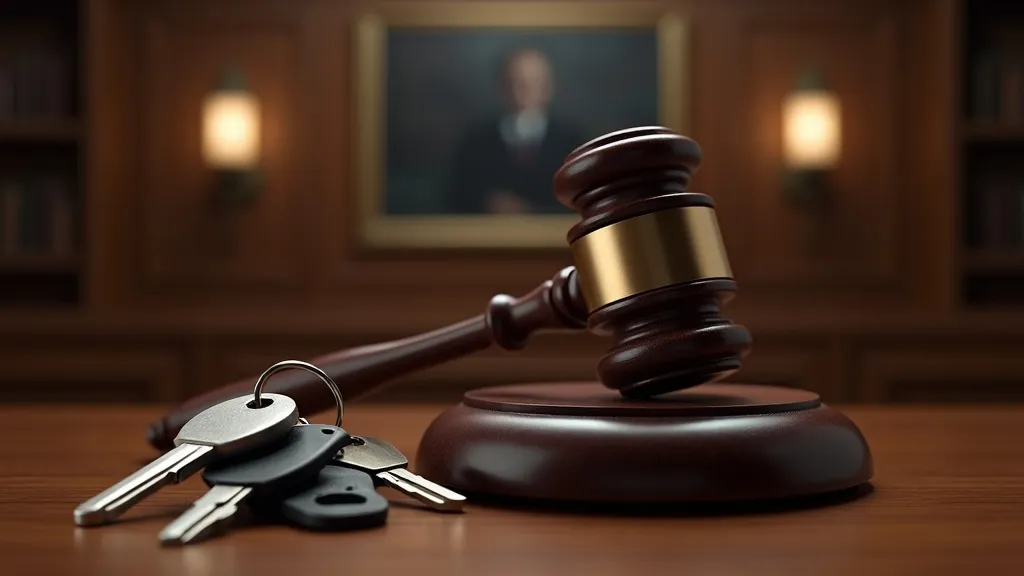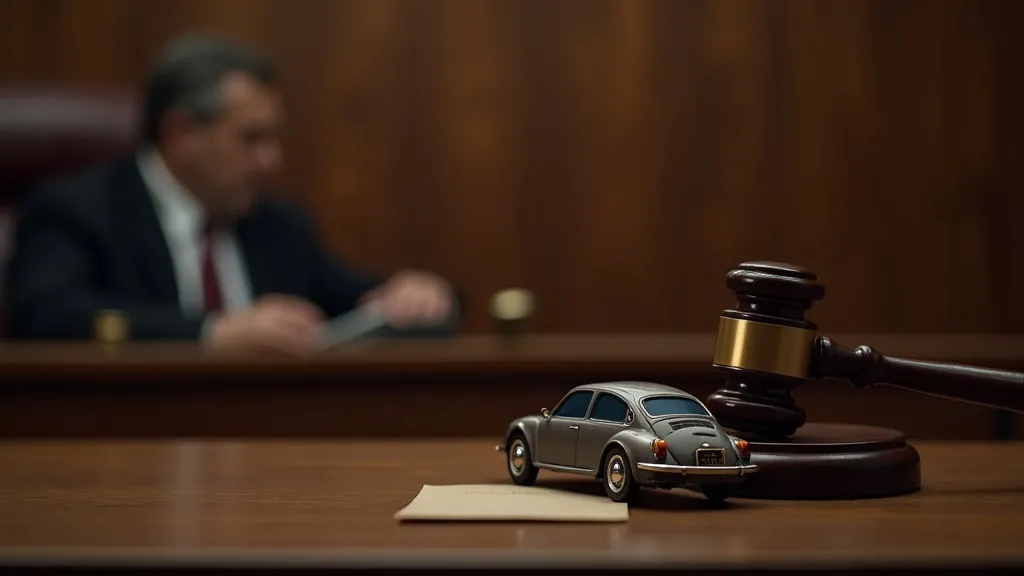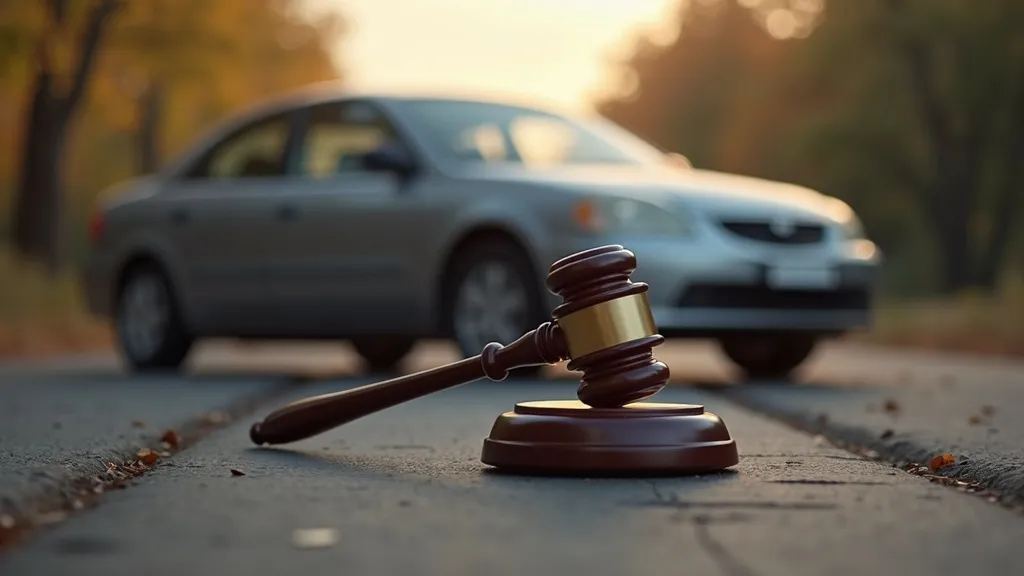Understanding Wrongful Repossession Cases
Wrongful repossession is a significant issue affecting consumers who face unjust vehicle or property retrievals by lenders. This article explores the legal landscape surrounding wrongful repossession, offering insights into the causes, impacts, and recourse options available to consumers. It also delves into the complexities of contract law and the responsibilities of lenders and borrowers in such scenarios.

Understanding Wrongful Repossession
Wrongful repossession occurs when a lender unlawfully seizes a borrower's property, such as a vehicle, despite the borrower's compliance with loan agreements. This issue often arises from misunderstandings, administrative errors, or aggressive tactics by lenders. It is crucial for consumers to understand their rights and the legal framework governing repossession to protect themselves from such actions.
In many cases, a wrongful repossession can occur without any prior notification to the borrower. This can lead to significant distress and disruption in the lives of those affected. Understanding the nuances of repossession laws is essential, especially in a time when many individuals and families are struggling financially. The emotional toll can be as severe as the financial repercussions, making it imperative to be well-informed and proactive in protecting one's rights.
Legal Framework and Consumer Rights
The legal landscape of repossession varies significantly by jurisdiction, but generally, lenders are required to follow strict protocols before repossessing an asset. These may include providing adequate notice, allowing a grace period for late payments, and ensuring the repossession process does not involve breach of peace. Consumers should familiarize themselves with their local laws and any specific terms outlined in their loan agreements to safeguard their rights. This knowledge can empower borrowers to advocate for themselves effectively.
Additionally, many states have enacted legislation aimed at protecting consumers from aggressive collection practices. These laws often mandate that lenders provide a clear and detailed explanation of the repossession process and the borrower's rights. For instance, the Uniform Commercial Code (UCC) governs transactions involving personal property and sets forth the legal standards for repossession, including the necessity of providing notice. Borrowers should not only read their contracts carefully but also stay informed about any changes in state or federal laws that may affect their rights in repossession situations.
Causes of Wrongful Repossession
- Miscommunication: Often, simple miscommunications between lenders and borrowers regarding payment status can lead to wrongful repossession. For example, if a borrower sends a payment but the lender does not receive it due to postal delays, the lender might incorrectly assume default.
- Administrative Errors: Mistakes in record-keeping or processing payments can result in a lender mistakenly believing a borrower is in default. This includes issues such as misapplied payments or clerical errors that create an inaccurate account status.
- Overzealous Collection Tactics: Some lenders or third-party agents might employ aggressive strategies, leading to premature or unlawful repossession actions. This can include tactics that violate fair debt collection laws, where collectors may intimidate or harass borrowers into submission.
- Change in Financial Status: A sudden change in a borrower’s financial situation, such as job loss or medical emergencies, can lead to missed payments. However, it is essential for borrowers to communicate these changes to their lenders promptly to avoid misunderstandings.
- Failure to Update Contact Information: If a borrower changes their address or phone number and fails to notify the lender, they may not receive important communications regarding their loan status, which can lead to unexpected repossession.
Impacts of Wrongful Repossession
Wrongful repossession can have profound financial and emotional impacts on consumers. Aside from the immediate loss of property, it can damage credit scores, complicate access to future loans, and cause significant stress. The loss of a vehicle, for example, can disrupt daily life, affecting employment opportunities, family responsibilities, and overall mobility. Understanding the potential repercussions underscores the importance of addressing wrongful repossession swiftly and effectively.
Moreover, the emotional toll of wrongful repossession should not be underestimated. Many individuals experience feelings of shame, frustration, and helplessness when faced with the loss of property they depend on for daily living. This can lead to anxiety and depression, particularly if the repossession process was aggressive or humiliating. For families, the repercussions can ripple through various aspects of life, affecting relationships and personal well-being.
In addition to personal impacts, wrongful repossession can have broader implications for communities. As more individuals face financial difficulties, the prevalence of wrongful repossession can contribute to a cycle of economic instability that affects neighborhoods and local economies. It can further exacerbate issues such as poverty and inequality, making it vital for consumers to advocate for their rights and for policymakers to consider reforms that protect individuals from unfair practices.
How to Address Wrongful Repossession
Consumers who believe they have been subject to wrongful repossession have several recourse options:
- Review Loan Agreements: Carefully examine the terms of the loan contract to ensure compliance with all conditions. Look for any clauses related to payment grace periods, notice requirements, and repossession procedures.
- Contact the Lender: Engage directly with the lender to clarify any misunderstandings or rectify errors. Document all communications, including dates, times, and the names of the representatives spoken to, as this information may be crucial if further action is needed.
- Seek Legal Advice: Consult with an attorney specializing in consumer rights or contract law to explore legal remedies. An experienced lawyer can help assess the situation, determine if there are grounds for a lawsuit, and guide the borrower through the legal process.
- File a Complaint: Report the incident to relevant regulatory bodies to investigate and mediate the issue. This could include state consumer protection agencies or the Federal Trade Commission (FTC), which oversees fair lending practices.
- Consider Mediation: In some cases, mediation can be an effective way to resolve disputes without going to court. Professional mediators can facilitate discussions between borrowers and lenders to find mutually agreeable solutions.
Conditions for Legal Recourse
| Condition | Description |
|---|---|
| Violation of Contract Terms | If the lender fails to adhere to the contract terms, legal recourse may be pursued. This includes failing to provide promised grace periods or notifications. |
| Lack of Proper Notice | Repossession without adequate notice can be grounds for a legal challenge. Borrowers must be informed of the default status and given a chance to remedy the situation. |
| Breach of Peace | Using force or threats during repossession can be legally contested. Lenders are prohibited from using intimidation tactics or unlawful entry to reclaim property. |
| Unlawful Seizure | If the repossession occurs without the legal right to do so, such as lacking a court order when required, it can be contested in court. |
| Discrimination | Any repossession action that is based on discriminatory practices, such as race or gender, can lead to legal challenges under civil rights laws. |
FAQs
Q: What should I do if my car is wrongfully repossessed?
A: Immediately contact your lender to resolve any discrepancies. If unresolved, seek legal advice to explore your options. Collect all relevant documentation, including payment records and communication logs, to support your case.
Q: Can I sue for wrongful repossession?
A: Yes, if there is evidence of breach of contract or unlawful actions, you may have grounds to sue. Legal action can lead to compensation for damages, including emotional distress and loss of property.
Q: How can I prevent wrongful repossession?
A: Keep detailed records of payments and communications with lenders, and understand your loan agreement thoroughly. Regularly check your account status and notify lenders of any changes in contact information or financial circumstances.
Q: What is a breach of peace?
A: A breach of peace refers to any repossession action that involves force, threats, or unlawful entry. It is crucial for lenders to adhere to legal standards during repossession to avoid legal repercussions.
Q: What are my rights if my vehicle is repossessed?
A: Consumers have the right to receive proper notification before repossession, to know the reason for repossession, and to recover their property in certain circumstances. Understanding these rights is vital in advocating for yourself.
In conclusion, wrongful repossession is a complex issue requiring awareness and proactive measures from consumers. By understanding the legal requirements and maintaining open communication with lenders, individuals can better protect themselves against unlawful repossession actions. It is essential for consumers to not only educate themselves about their rights but also to cultivate a relationship with their lenders based on transparency and communication. In doing so, they can significantly reduce the risk of facing harsh consequences from wrongful repossession.
Moreover, as the financial landscape continues to evolve, particularly in the wake of economic downturns and increasing financial pressures, it is crucial for consumers to stay informed about their rights and the mechanisms available for recourse. Community organizations, legal aid services, and consumer advocacy groups can provide additional resources and support for those navigating the often complicated world of loans and repossession. By working together, consumers can help build a more equitable financial system that protects individuals from the dangers of wrongful repossession and promotes fair lending practices.
Ultimately, the key to preventing wrongful repossession lies in vigilance, communication, and education. Consumers must take an active role in understanding their financial obligations and ensuring that they are treated fairly in their dealings with lenders. By doing so, they can safeguard their property and maintain their financial health in an increasingly challenging economic environment.
-
1

Explore Thrilling Adventures: Unveil the World's Very Exciting Travel Destinations
-
2

Unlock the Secrets to Maximize Your Kona SUV's Fuel Economy
-
3

Unlock the Highest Resale Profit: Expert Tips for Boosting Your Kona SUV's Value
-
4

Effortless Adaptation to Senior Apartment Living: Master the Transition with This Ultimate Strategy
-
5

Transform Your Senior Apartment into a Cozy and Charming Retreat: Personalized Touches to Make It Truly Home










